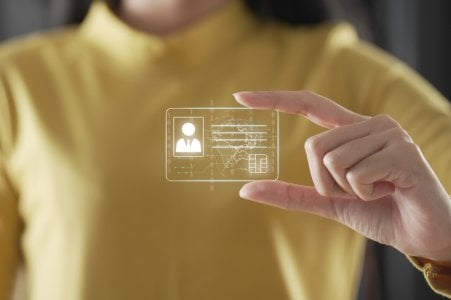Government Services Minister unveils revolutionary ‘gold standard’ in digital security
By
Seia Ibanez
- Replies 39
In an era where digital security and privacy are at the forefront of everyone's mind, Australians are about to witness a significant leap forward in how they manage and share their personal information.
Government Services Minister Bill Shorten is set to unveil a new 'gold standard' digital ID program, which promises to revolutionise how Aussies interact with their sensitive data.
The program, aptly named Trust Exchange (TEx), is not just another digital initiative; it's a game-changer for Australians tired of the risks of handing over physical documents like passports or driver's licenses.
By the end of this year, all Australians will have the option to use this cutting-edge platform on their phones, allowing them to share private personal information securely and with ease.

During his address to the National Press Club, Shorten will outline the details of the national TEx program, which is currently in the 'proof-of-concept stage’.
The technology, accessed via a person's myGov wallet, will securely store information such as date of birth, address, citizenship, visa status, qualifications, occupational licenses, working with children checks, and more.
Imagine booking a hotel room without the need to physically present your passport or driver's licence. With TEx, you can share that information digitally in a snap.
Starting a new job? The 'verify my identity' tool within TEx will allow you to choose which documents to share with your employer.
‘You control what details are exchanged,’ Shorten said.
‘You then have in your wallet a record of sharing, say, your passport and trade certificate with your employer.’
But how does it work? The TEx program will use a 'digital token' system. This token, while not containing personal information, acts as a 'digital thumbs up’, verifying details without the need to store them.
‘Take the case of someone going to the local Returned and Services League (RSL) and wanting to prove they’re from interstate or that they’re over 18…they’d just hold their phone up to a QR code or tap-to-pay machine and a digital token will be sent to the club vouching for their identity, address and age,’ Shorten said.
‘None of that information needs to be kept by the club. The token will be a valuable promise to the club but of zero value to a cybercriminal.’
Services Australia is spearheading the rollout of the TEx program, collaborating with other government systems to ensure a seamless and integrated experience.
Moreover, the data protection protocols for TEx are set to be even tighter than the General Data Protection Regulation (GDPR) used across the European Union, ensuring the highest data security standards.
 How do you feel about transitioning to a digital wallet for your personal information? Do you have any concerns about data security or ease of use? Share your opinions in the comments below!
How do you feel about transitioning to a digital wallet for your personal information? Do you have any concerns about data security or ease of use? Share your opinions in the comments below!
Government Services Minister Bill Shorten is set to unveil a new 'gold standard' digital ID program, which promises to revolutionise how Aussies interact with their sensitive data.
The program, aptly named Trust Exchange (TEx), is not just another digital initiative; it's a game-changer for Australians tired of the risks of handing over physical documents like passports or driver's licenses.
By the end of this year, all Australians will have the option to use this cutting-edge platform on their phones, allowing them to share private personal information securely and with ease.

Government Services Minister Bill Shorten announced the digital program for keeping and sharing personal information. Credit: Shutterstock
During his address to the National Press Club, Shorten will outline the details of the national TEx program, which is currently in the 'proof-of-concept stage’.
The technology, accessed via a person's myGov wallet, will securely store information such as date of birth, address, citizenship, visa status, qualifications, occupational licenses, working with children checks, and more.
Imagine booking a hotel room without the need to physically present your passport or driver's licence. With TEx, you can share that information digitally in a snap.
Starting a new job? The 'verify my identity' tool within TEx will allow you to choose which documents to share with your employer.
‘You control what details are exchanged,’ Shorten said.
‘You then have in your wallet a record of sharing, say, your passport and trade certificate with your employer.’
But how does it work? The TEx program will use a 'digital token' system. This token, while not containing personal information, acts as a 'digital thumbs up’, verifying details without the need to store them.
‘Take the case of someone going to the local Returned and Services League (RSL) and wanting to prove they’re from interstate or that they’re over 18…they’d just hold their phone up to a QR code or tap-to-pay machine and a digital token will be sent to the club vouching for their identity, address and age,’ Shorten said.
‘None of that information needs to be kept by the club. The token will be a valuable promise to the club but of zero value to a cybercriminal.’
Services Australia is spearheading the rollout of the TEx program, collaborating with other government systems to ensure a seamless and integrated experience.
Moreover, the data protection protocols for TEx are set to be even tighter than the General Data Protection Regulation (GDPR) used across the European Union, ensuring the highest data security standards.
Key Takeaways
- Bill Shorten is set to announce the Trust Exchange (TEx) digital ID program, touted as a 'gold standard' platform for secure personal information sharing.
- The TEx program will enable Australians to use their phones to share private information, such as date of birth and address, without physically handing over sensitive documents.
- The technology, which will be accessible through the myGov wallet, is scheduled to launch by the end of the year after proof-of-concept testing.
- Services Australia will manage the rollout, with assurances that data protection protocols will exceed the standards of the General Data Protection Regulation used in the European Union.







